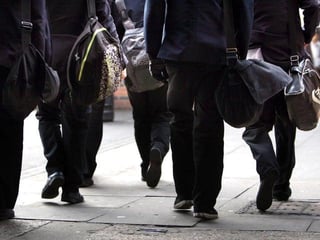Call for "urgent action" to level the playing field for secondary school children as disadvantage gap grows, says Northern education and business leaders
The disadvantage gap among secondary school pupils had become wider even before the coronavirus pandemic, according to a report.
In a report published by the Northern Powerhouse Partnership today, voices from across the North say gross inequalities of the north-south divide, continues to entrench unfairness in the education system, as the high numbers of disadvantaged children in our region increases.
Advertisement
Hide AdAdvertisement
Hide AdFormer Treasury Minister Lord Jim O'Neill said there was a "disadvantage chasm" in fulfilling the promises made about bridging the education gap between London and the North.
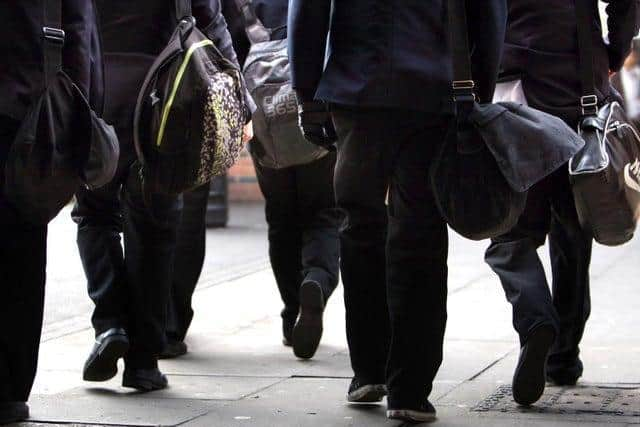

The Northern Powerhouse Partnership, chaired by former Chancellor George Osborne, compared numbers of secondary schools with a high level of long-term disadvantaged high impact pupils between 2017 and 2019, as well as analysing attainment at GCSE level.
There has been a sharp increase in the number of these schools in just one year, rising by 16 per cent between 2018 and 2019.
At the end of the 2018/19 academic year there were 537 schools in England with at least 10 per cent of their Year 11 pupils in the long-term disadvantaged high impact group.


Advertisement
Hide AdAdvertisement
Hide AdThese schools were found to be largely concentrated in the North, with 25 per cent in the North West alone, as well as parts of the West Midlands.
Lord O’Neill, vice-chair of the Northern Powerhouse Partnership, said: "It goes without saying that this past year has deepened the divide in our educational system but this report shows that the situation was far from perfect even before the pandemic.
"We’ve gone past the point where this is simply a disadvantage gap; what we’re talking about is a disadvantage chasm."
The report looked at long-term disadvantaged pupils in secondary school who had spent at least 80 per cent of their time in school on free school meals, as well as those from “high impact” groups, primarily from White British and Black Caribbean backgrounds.
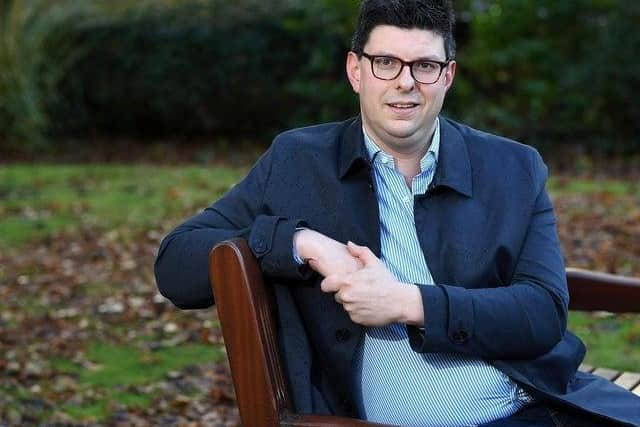

Advertisement
Hide AdAdvertisement
Hide AdIn the North East 10.1 per cent of pupils were found to fall into this category - double the national average. The North West was found to have the second highest proportion of these children, with 7.3 per cent, followed by Yorkshire and the Humber with six per per cent.
In contrast, just 2.8 per cent of pupils in Outer London were found to be long-term disadvantaged "high impact" group.
Henri Murison, director of the Northern Powerhouse Partnership, said: "Even prior to the pandemic, children in Yorkshire were facing a number of barriers to their educational attainment, meaning they have an even bigger hill to climb when it comes catch-up.
"This issue of disadvantage has been compounded by the best part of a year of school closures, where the digital divide means many children are simply unable to work effectively from home. In Yorkshire and the Humber, there are at least 116,000 families without access to a laptop, PC or tablet to work from.”
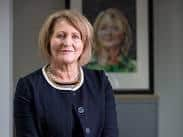

Advertisement
Hide AdAdvertisement
Hide AdThe lobbying organisation says "bold, swift action" is needed from the government across Yorkshire and the North. This includes backing a northern mentoring programme for every disadvantaged pupil at GCSE level.
While also providing emergency funds to support pupil premium recipients and reform to target this at the most vulnerable.
The Children's Commissioner for England Anne Longfield said a relentless push for a re-balancing was need to address the widening education gap, which has been ruthlessly exposed during the pandemic.
She said: “While many children in the North are thriving, there are huge gaps in attainment between the poorest Northern children and those in the South, with many children in the North facing the double-whammy of entrenched deprivation and poor schools.
Advertisement
Hide AdAdvertisement
Hide Ad“The Covid crisis has made these long-term, generational problems even worse. Some children in the North will have spent less than a full term in school over the course of a year.
"The Government’s promise to ‘level-up’ will only succeed if it makes bold and generous funding decisions to boost catch-up in those areas where hundreds of thousands of children will have fallen behind even further over the last year.”
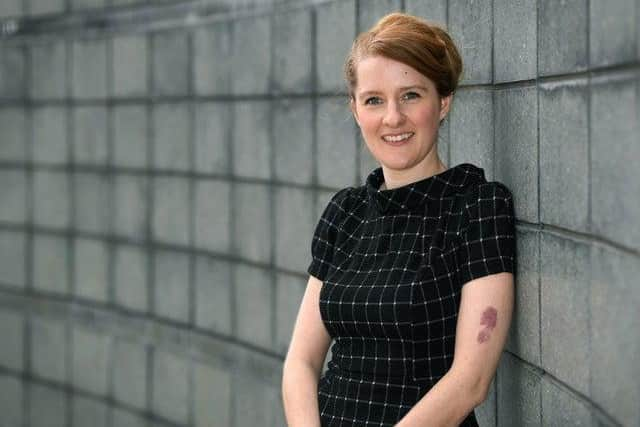

Fiona Spellman, chief executive of the Northern education charity Shine, added a "significant increase" to the Pupil Premium was needed to ensure those schools in areas of high deprivation are ready and able to meet the challenges they are facing.
She said: "There is no doubt that long-term deprivation leads to lower academic achievement so it is deeply concerning that the number of disadvantaged children is on the rise.
Advertisement
Hide AdAdvertisement
Hide Ad“Education has long been a hugely unequal playing field for many children across the North. Those from poorer backgrounds begin school significantly behind their peers and evidence shows those inequalities only grow wider throughout their school years.
“Covid has only served to deepen these inequalities, which - as this report demonstrates - were worsening even before the pandemic began.
“It is vital for the future vitality of the North that urgent action is taken to level the playing field for children and families.
A Department for Education spokeswoman, said: "All children should have access to good quality education, no matter their background.
Advertisement
Hide AdAdvertisement
Hide Ad"That's why we are focusing our catch-up efforts and device provision to disadvantaged children during the pandemic, which includes 1.3 million laptops and tablets.
"More than 875,000 of these have been delivered already, alongside access to free mobile data for disadvantaged families.
"Our £1 billion Covid catch-up package is helping tackle the impact of lost teaching time as a result of the pandemic, and this includes the £350 million national tutoring programme.
"Our move to using the October census will bring increased funding to schools, as more pupils have become eligible for pupil premium."
______________
Support The Yorkshire Post and become a subscriber today.
Advertisement
Hide AdAdvertisement
Hide AdYour subscription will help us to continue to bring quality news to the people of Yorkshire. In return, you'll see fewer ads on site, get free access to our app and receive exclusive members-only offers. Click here to subscribe.
Comment Guidelines
National World encourages reader discussion on our stories. User feedback, insights and back-and-forth exchanges add a rich layer of context to reporting. Please review our Community Guidelines before commenting.
